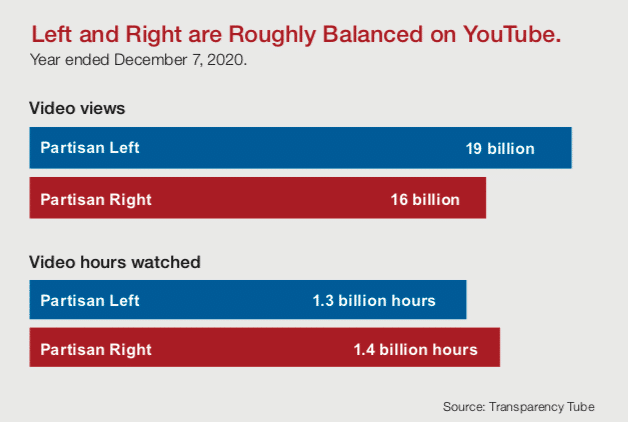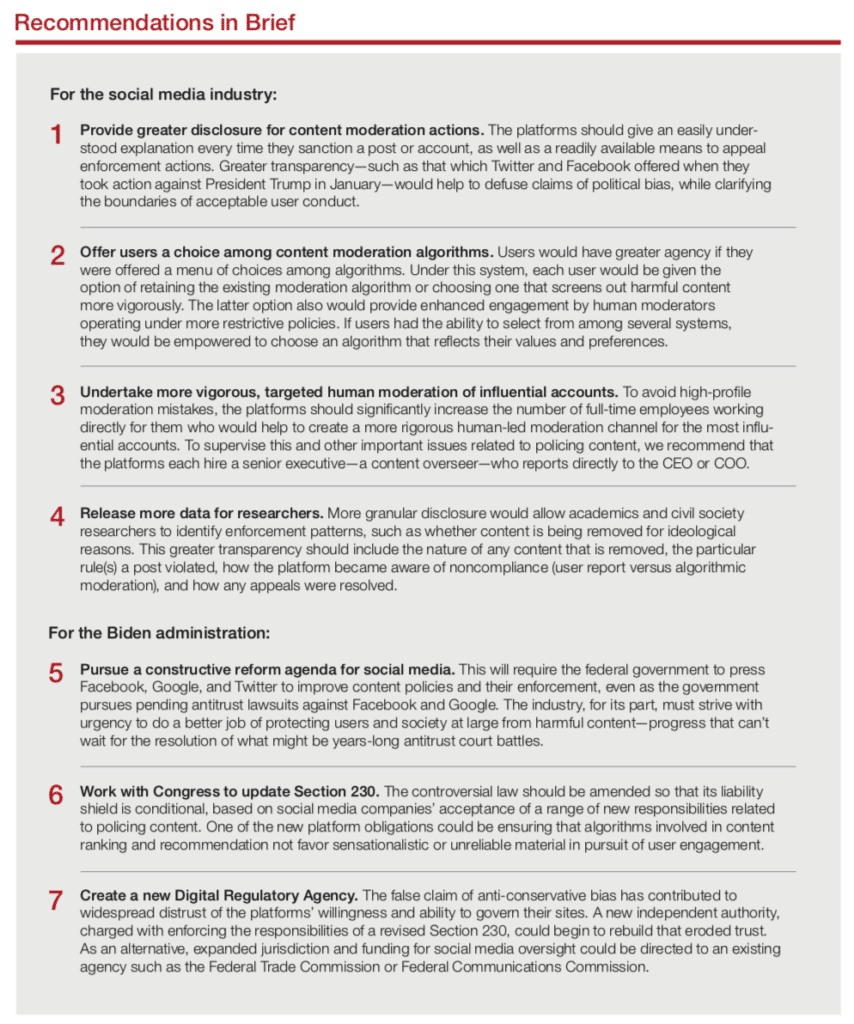Do social media companies censor conservatives? Researchers say no
Justin Hendrix / Feb 8, 2021For many on the right, the deplatforming of former President Donald Trump following his incitement of the violent events at the US Capitol on January 6th represented the apotheosis of "Big Tech" censorship of conservative voices. Claims of censorship against the right are the basis for some lawmakers' demands for reform of Section 230 of the Communications Decency Act, which has long shielded internet platforms from liability for most user generated content. Researchers at NYU Stern School of Business Center for Business and Human Rights assessed the available data for a new report, False Accusation: The Unfounded Claim that Social Media Companies Censor Conservatives, and find there is no support for such claims.
Noting that there are "no empirical studies that definitively assess the claim of anti-conservative bias," the researchers go on to provide a meta-analysis of various reports that include data, taken together, suggest little evidence of censorship. These include multiple points of evidence:
- Facebook engagement data from CrowdTangle and NewsWhip that show right wing media outperforming left voices on the site
- Prior research from Politico and the Strategic Dialogue, a London-based nonpartisan think thank that concluded right wing social media influencers dominated discussion of 2020's most volatile political issues
- A study by the Digital Innovation and Democracy Initiative of the German Marshall Fund
- A series of studies from Media Matters for America that show right-leaning content outperforming left-leaning content
- Research from Transparency Tube that shows right wing content outperforming that from the left

Yet the researchers do acknowledge a key complaint levied by lawmakers such as Texas Republican Senator Ted Cruz, that social media companies must do more to make the basis for moderation decisions transparent. Based on the evidence, the researchers offer a series of recommendations to reduce the impression of bias in content moderation, provide more transparency in moderation decisions, and create a new regulatory apparatus for content moderation on the whole:

Following criticism of the report from the right, including Fox News personality Tucker Carlson, one of the report's authors Paul Barrett, spoke to Mediaite, a site that offers media criticism.
“We acknowledged in the report that there are limitations on available data related to content moderation and other aspects of the platforms’ activities. So, we gathered the data that we could — such as engagement information available from CrowdTangle and NewsWhip — and combined that with information from previous research by other organizations,” Barrett told the site. “We also did a close analysis of particular instances of supposed censorship over time. We relied on this combination of sources to reach our conclusion that the claim of anti-conservative bias is unfounded. In fact, it is a form of disinformation meant to rile up the Trump base.”
Authors
